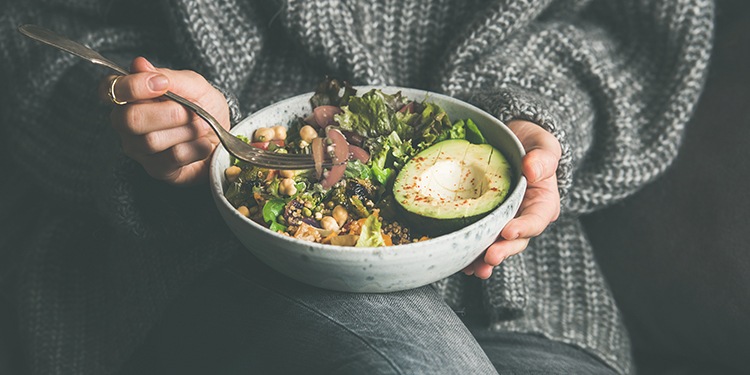Subscribe to our newsletter
Receive news and benefits on health and wellness.

SHA Magazine Health & Beauty
From nutrition to stress management: five ways to improve digestive health
Taking care of the microbiota involves basics like a healthy diet and stress management. “The goal is to ensure that the microbiota are balanced and highly biodiverse. Each person has a different microbiota and it is highly sensitive to changes, both physical and emotional”, warns Dr. Ámina Alani, digestive health expert at SHA Wellness Clinic.
Our body is home to around 100 trillion bacteria from some 400 different species. And the microbiota feeds on nutrients that we eat. Which makes it especially important to eat a balanced diet that guarantees an adequate supply of these nutrients. Physical activity and emotional management are also important.
Below, Dr. Ámina Alani suggests five healthy habits for a healthy microbiota:
Prebiotics are basically plant fibres that act as fertilisers to stimulate the growth and development of healthy bacteria in the gut.
Eating prebiotics promotes the growth of these bacteria by providing different substrates. They work in the large intestine or colon, where they are fermented by the bacteria of the intestinal microbiota.
Prebiotics can be found in many fruits and vegetables, especially those containing high levels of complex carbohydrates. They are naturally found in foods including vegetables, greens, fruits, cereals, legumes and nuts.
Probiotics are foods or supplements that contain live micro-organisms that work to promote the good bacteria in our body. They are generally high in fibre and help to improve the balance of these micro-organisms.
Foods like sauerkraut, kimchi, miso and kombucha enrich the microbiota. Vegetarian and fermented yoghurts in general are also interesting natural probiotics.
Mental stress is synonymous with microbiota stress and vice versa. Managing stress and emotions is therefore particularly important for digestive health.
According to a Canadian study published in the journal Nature Communications, the gut microbiota may play a key role in the development of psychological disorders such as depression or anxiety.
According to a 2017 review, exercise increases microbial diversity independently of diet. Thus, the microbiota of athletes may be related to the protein content of the diet.
“Alterations in the microbiota following exercise are more substantial earlier in life compared to later in life. Exercise ability may be influenced by the presence of a diverse microbiota”, the paper explains.
It adds: “High-fat diets increase intestinal inflammation and exercise reduces this inflammation and may improve the integrity of the intestinal epithelium”.
Recently, other studies have found that some of the lactate produced during exercise can positively affect certain gut micro-organisms.
Several important studies suggest gut microbiota can influence sleep, since the two are related and constantly interact.
A poorer and less diverse microbiota significantly reduces the duration and quality of sleep and, in turn, poor sleep and disruption of circadian rhythms and sleep-wake cycles lead to gut dysbiosis.
Receive news and benefits on health and wellness.
